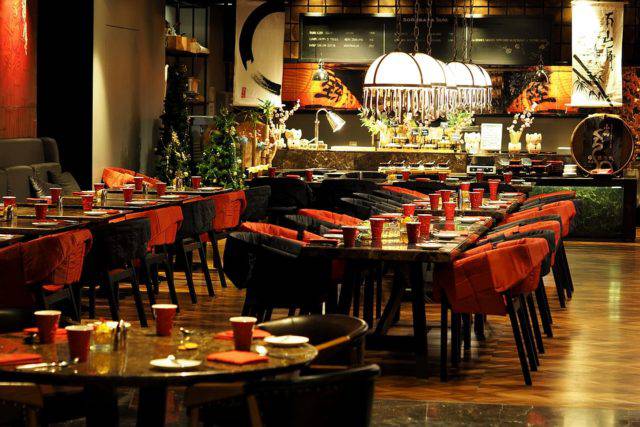Food is a frequent topic of conversation and initiatives have multiplied around it in recent years: shows, fairs, television programs and contests, thematic channels, specialized magazines, etc.
Without a doubt, setting up a restaurant has great attractions. Properly managed and with a good public relations policy, it can become a new option in the local leisure scene.
Today as never before, the profession of a chef is especially valued and, if our skills are mainly culinary, we can aspire, why not, to stardom. From an economic point of view, in the most successful cases, a return of 25% has been achieved – it being more normal to expect a return of between 15% and 20% -.
Although setting up a restaurant, we also face a series of difficulties. Hospitality activities require a lot of sacrifice and dedication and it is necessary to reflect in-depth on our current and future availability. The location is of special importance and on many occasions, it is difficult to find a place that is not only suitable for our target audience but also meets the legal requirements for licenses and authorizations and whose price is within our means.
In general, a strong initial investment is required, which can discourage more than one. Finally, one of the most pressing problems in the hospitality industry is the difficulty in finding qualified and motivated staff – despite the hours that the profession demands -.
You also have to be aware that this is a somewhat oversized sector; The high number of ‘restaurants and food stalls’ (81,179 according to the INE) gives rise to a very competitive environment, which requires the adoption of effective differentiation strategies. It is crucial to be aware of current trends in gastronomy.
“Healthy and sustainable eating, creating awareness of food waste, using customer-focused technology, and proposing unique and personalized experiences” are some of them, in the words of Silvia Prieto, an expert in tourism business management and hotel management and founding partner of the restaurant “ Cenador de las Monjas ”, located in the premises of the old convent in Pastrana.
Before starting
Setting up a restaurant is a decision that must be properly matured, carrying out an in-depth prior investigation. Sector, trends, customers and local market, competitors, suppliers, and purchasing channels, and legislative aspects, are the main issues that must be focused on.
It is also necessary to carry out a very sincere internal analysis, to know what we can do with the resources we have (economic, technical, human, etc.). A good prior study and knowledge of our target audience will allow us to define our business concept, its structure, positioning, location, and elements of the marketing mix in the most concrete way possible.
7 keys to the success of a restaurant
1. Gastronomic offer. It is the raison d’être of a restaurant, but sometimes the quality is not up to par, not only with expectations but with minimum standards.
2. Service. Determinant when it comes to shaping the experience and final perception by customers, it needs to be detailed in an action protocol.
3. Design of the letter. It is a powerful communication and sales tool. Without photographs, with the most profitable dishes more visible and with references to allergens, the chef must intervene in its preparation.
Reads More: skunk haircut
4. Environment. The style and decoration of the restaurant must achieve an atmosphere in accordance with the business concept and the target audience.
5. Prices. The key to getting the prices right is to combine the value perceived by the client, the situation of the local market, the profile of the chosen clientele, and the costs of raw materials.
6. Communication strategy. You have to quantify objectives, focus on the target audience, establish an adequate budget, measure, and control.
The communication strategies most used by restaurants include advertising and public relations, digital presence ( web and Google My Business ), attraction strategy in social networks, and geolocation (for example, Local Guides is a Google program with rewards for people who provide reviews and information to Google Maps ) and presence in opinion portals and online reservations (for example, TripAdvisor ).
7. Loyalty. Having some stalwarts that repeat over time and bring in new clients is a goal to be set.
Author Bio:
This is Aryan, I am a professional SEO Expert & Write for us Fashion blog and submit a guest post on different platforms- We provides a good opportunity for content writers to submit guest posts on our website. We frequently highlight and tend to showcase guests.
